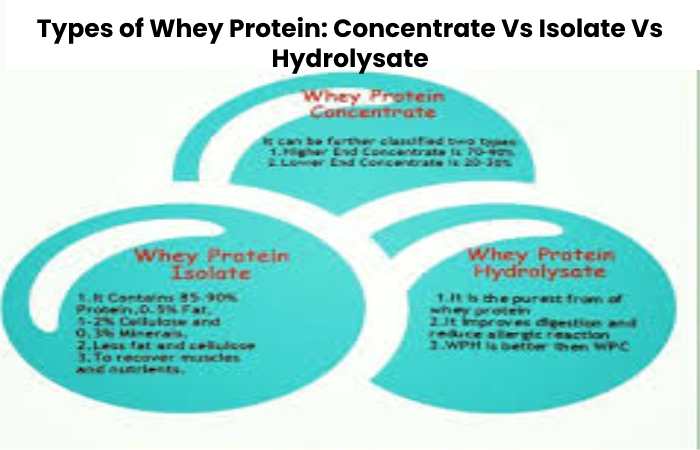Whey Protein: Not all protein is created equal. Nearly forms of protein, such as whey, are better than others. Whey protein contains an incredible variety of essential amino acids, which are absorbed quickly. Numerous studies show that it can help you increase strength, gain muscle, and lose significant quantities of body fat.
However, whey is additional than just protein. It contains many additional nutrients, some with potent biological belongings. In fact, it’s one of the best-studied additions in the world. This is a detailed article around whey protein — what it is, how it works and how it can help you attain your fitness and health goals.
Table of Contents
What Is Whey Protein?
Whey protein is a combination of proteins isolated from whey, which is the liquid part of milk that splits during cheese production. Milk covers two main protein types: casein (80%) and whey (20%).
Whey is created in the watery portion of milk. When cheese remains produced, the fatty parts of the milk clot and the whey remains unglued from it as a byproduct. If you’ve ever opened a yoghurt container to see liquid floating on top that’s why. Cheesemakers used to abandon it before they discovered its commercial value.
After being separated during cheese production, whey goes through various processing steps to become what people usually recognize as whey protein a powder that remains added to shakes, meal substitutes and protein bars.
[Whey protein] doesn’t palate very well, which is why it’s usually flavored. Chocolate-, vanilla- and strawberry-flavoured powders are popular. It’s significant to read the ingredients list, as some products may have unhealthy additives like refined sugar.
Whey Protein Supplements Can Help Boost Your Protein And BCAA Intake
Proteins are the main building blocks of the human body. They’re used to make various essential things, including tendons, organs and skin, hormones, enzymes, neurotransmitters and different molecules. Proteins are also the building blocks of the contractile elements in your muscles. They’re assembled from amino acids, smaller molecules linked together like beads on a string.
Some amino acids are produce by your body’s cells, while others remain supplied by the food you eat. The ones that you must get from foods stand termed essential amino acids. Proteins that provide all nine necessary amino doses are the best, and [whey protein] is laden with them.
It’s exceptionally high in significant branched-chain amino acids (BCAAs) like leucine and contains a high amount of cysteine. Show that leucine is the greatest anabolic (growth-promoting) amino acid, and cysteine can assist boost levels of the cellular antioxidant glutathione.
Types of Whey Protein: Concentrate Vs Isolate Vs Hydrolysate

There are several general types of [whey protein]. Their main difference is in the method they have remained processed.
Concentrate: Around 70–80% protein; covers some lactose (milk sugar) and fat and has the best flavour.
Isolate: 90% protein, before higher; contains less lactose and fat and absences many beneficial nutrients in [whey protein] concentrate.
Hydrolysate: Also recognized as hydrolyzed whey, this type has remained pre-digested so that it gets engrossed faster. It causes a 28–43% better spike in insulin levels than isolate.
[Whey protein] concentrate looks to be the overall best option. Many options are available online. It’s inexpensive and retains the most helpful nutrients naturally in whey. Many people also favour the taste, probably due to the lactose and fat.
Conclusion
[Whey protein] is an exceptionally healthy way to add additional protein to your diet. It’s a quality protein source fascinated and utilized efficiently by the human body. This is particularly important for athletes, bodybuilders or individuals who need to gain muscle mass and strength while losing fat.
Also read : The Rise of Workplace Wellness Benefits
Related posts
Featured Posts
Airbnb San Diego County, CA – Holiday Rentals in San Diego
Introduction Airbnb is a online business company that connects marketplaces for holiday rentals, homestays, experience and amazing locations This company…
Simple Ways to Reduce Stress
Simple Ways to Reduce Stress: Are you feeling stressed? Take ten notes and try one of the activities below to…


